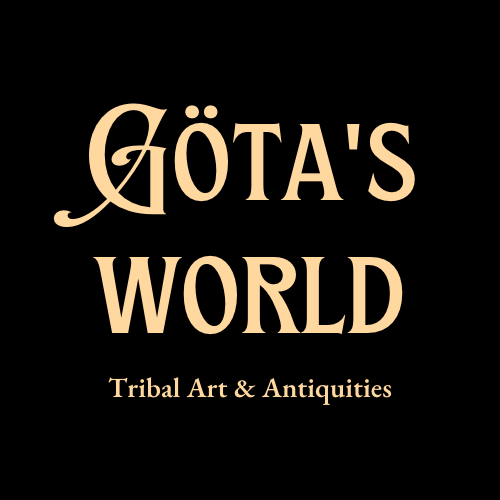Fang Reliquary Guardian Figure (Eyema-o-Byeri)
Fang Reliquary Guardian Figure (Eyema-o-Byeri)
Couldn't load pickup availability
Fang people, early 20th century, Cameroon or Northern Gabon, Central Africa
Magnificent old male ancestor figure, eyema-o-byeri (also biyema biyeri or nlo byeri), carved from a single piece of hardwood and originally mounted atop a cylindrical bark reliquary. Shown in a lightly flexed stance, the figure subtly shifts its weight to the proper right, a remnant of its earlier conception as a seated form—evident in the abbreviated, powerful thighs contrasting with the elongated calves. The arms bend forward at the elbows, hands brought together before the torso in a gesture that suggests alert, contained energy, here holding a cup.
The head—large, ovoid, and dramatically modeled—sits above a broad columnar neck. Deep arcing incisions extend from the corners of the eyes to the bridge of the nose. The open oval mouth displays a row of carved teeth. As with all Fang sculpture, regional style distinctions are evident; this striking example combines childlike proportions with adult musculature, reflecting Fang philosophical ideas about the cyclical nature of life and ancestral presence.
Reliquary guardian figures were placed atop wooden bark containers that held the bones and skull fragments of important lineage ancestors—village founders, great hunters, warriors, and women of exceptional spiritual authority. Their primary function was to protect and mediate: shielding the sacred relics from the gaze of women and uninitiated youths, and serving as a spiritual interlocutor consulted before hunting, harvesting, migration, or warfare. Prior to removal from their original context, the figures were typically detached from the reliquary boxes they adorned.
The Fang, living across northern Gabon, southern Cameroon, and Equatorial Guinea, hold a deep reverence for ancestor veneration (Bieri or Byeri). Central to their cosmology is Mebe’e, the eternal creator, and Ndzame, the first ancestor fashioned from clay. Over time, Fang religious expression incorporated elements of Christianity—especially during French colonial rule—blending into the hybrid spiritual system known as Bwiti, while continuing to draw on the ancestral guidance of Byeri figures. Secret associations such as So, Gil, and Ngi helped maintain social cohesion and moral order.
This superb byeri guardian figure, with its powerful presence, refined carving, and long devotional history, stands as a remarkable testament to Fang artistry and spiritual tradition.
Good condition. Age-related heavy wear and extensive handling over many years. Light, old corroded wood with wormholes, fractures, chips, and cracks. Lovely encrusted patina throughout. Size approx. 41,0cm x 10,8cm x 9,4cm (excluding the modern stand).
Provenance: Finnish private collection
For a similar examples see:
Male Reliquary Figure (Nlo Bieri), The Metropolitan Museum of Art, Accession number:1979.206.119 (https://www.metmuseum.org/art/collection/search/312334)
Female Reliquary Guardian Figure (Byeri), The Israel Museum, Jerusalem, Accession number: B97.0071 (https://www.imj.org.il/en/collections/225037-0)
Reliquary Guardian Figure (Eyema Byeri), National Museums Liverpool, Accession number: 1967.113.2 (https://www.liverpoolmuseums.org.uk/artifact/reliquary-guardian-figure-eyema-byeri)
References and further reading:
Eternal Ancestors: The Art of the Central African Reliquary, ed. Alisa LaGamma, New York: The Metropolitan Museum of Art, 2007.
Fang Religious Experience - Bwiti. An Ethnography of the Religious Imagination in Africa, J. W. Fernandez, Princeton: Princeton University Press, 1982.
A Masterwork That Sheds Tears... and Light: A Complementary Study of a Fang Ancestral Head, Roland Kaehr, UCLA James S. Coleman African Studies Center. 40, pp. 44–57 (https://www.jstor.org/stable/i20447849)
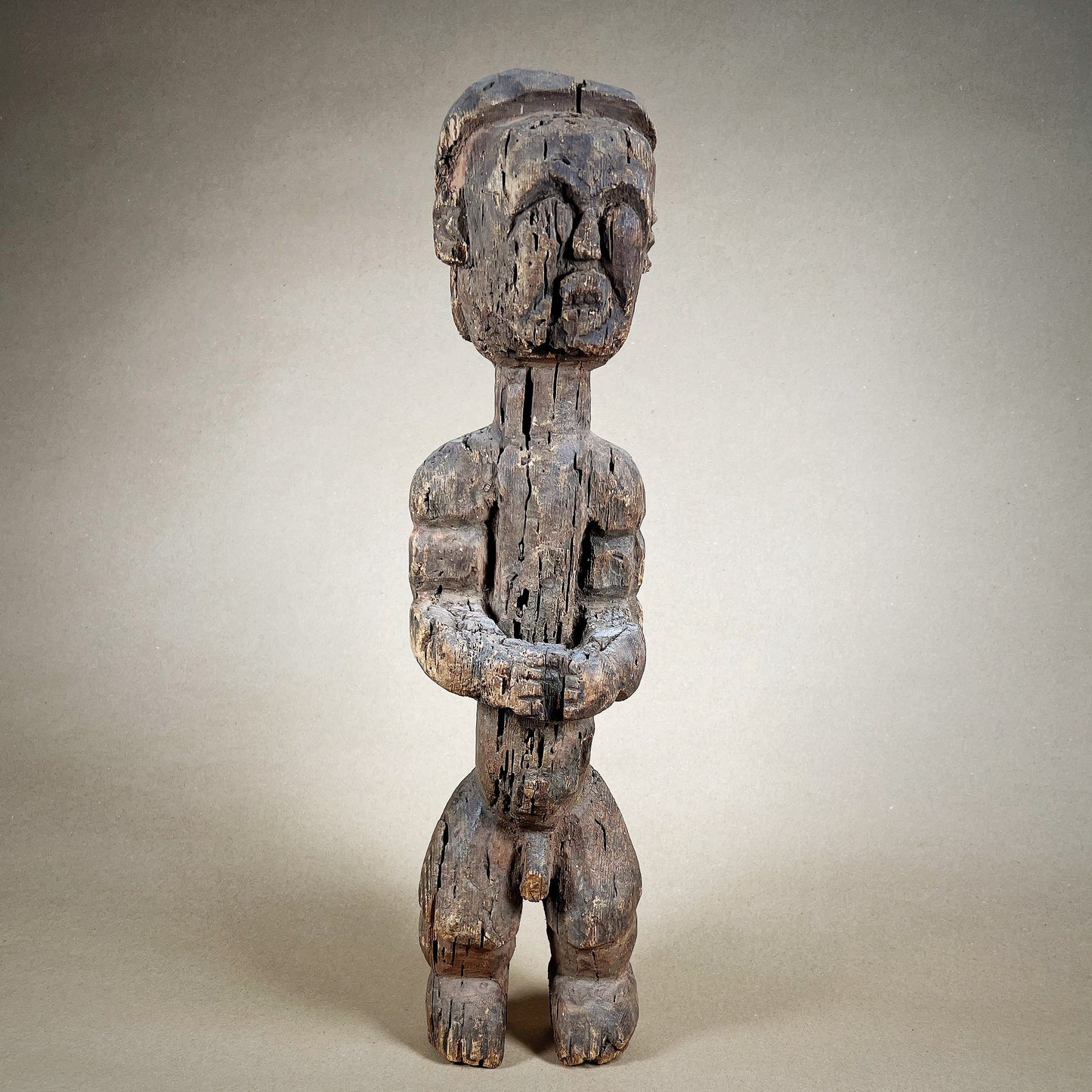
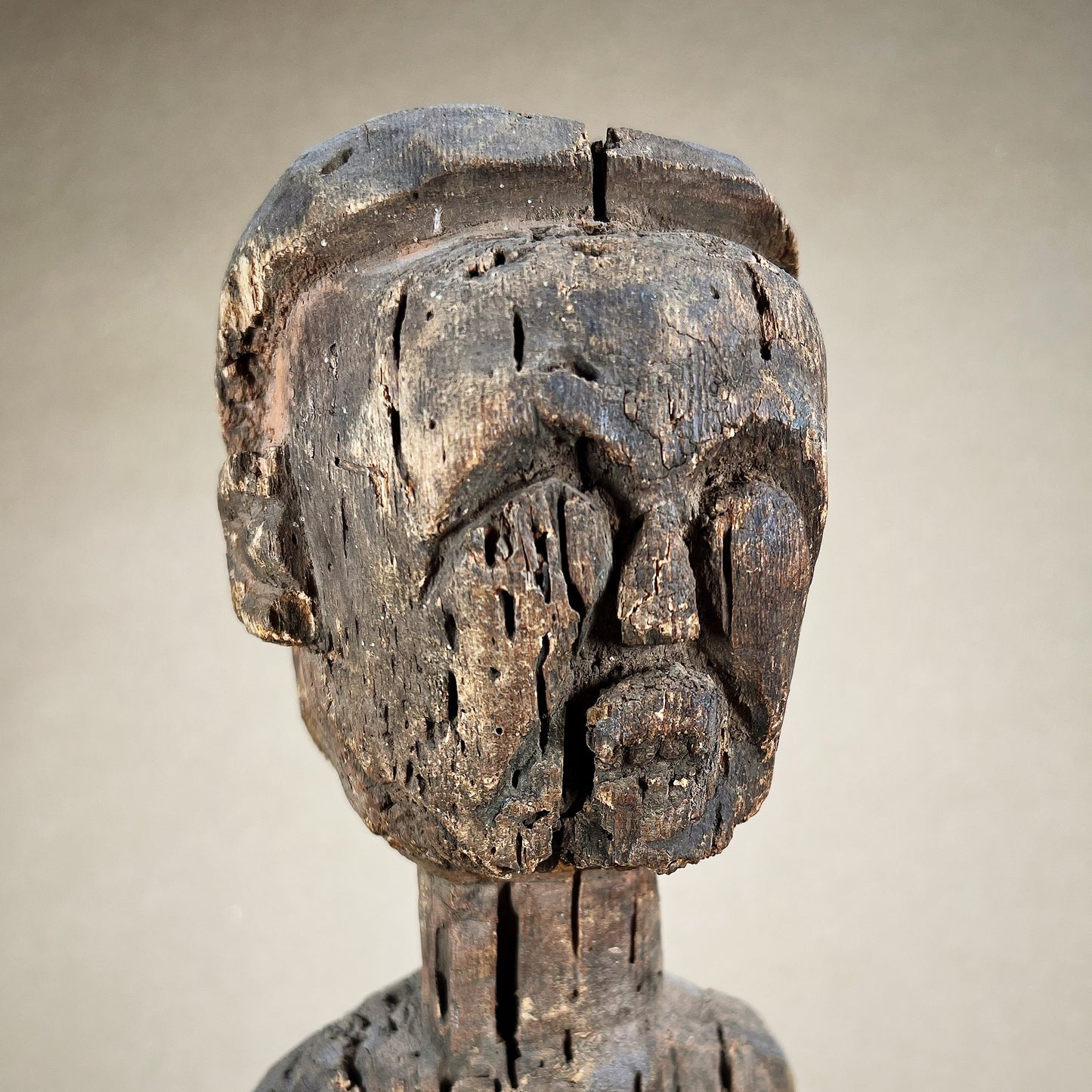
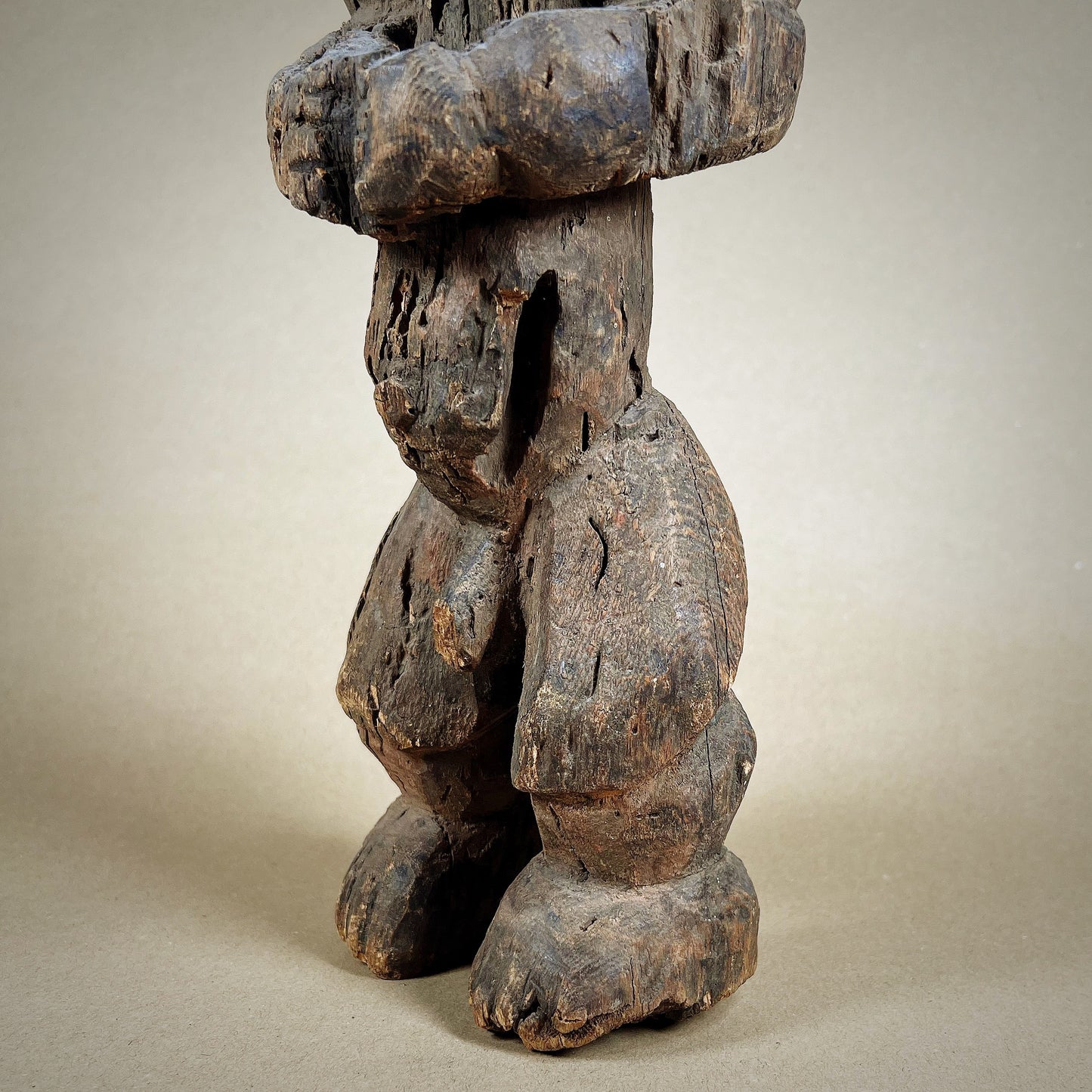
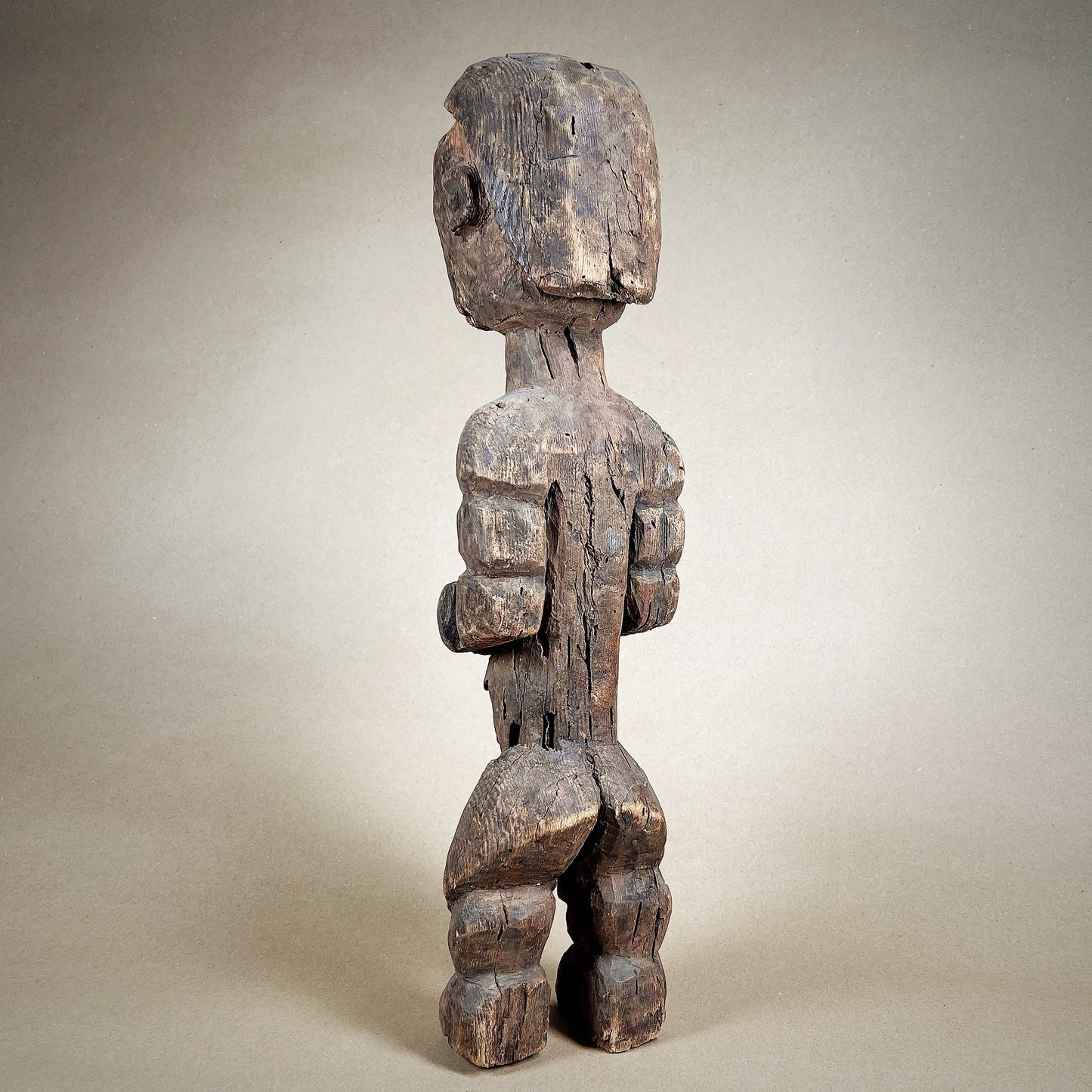
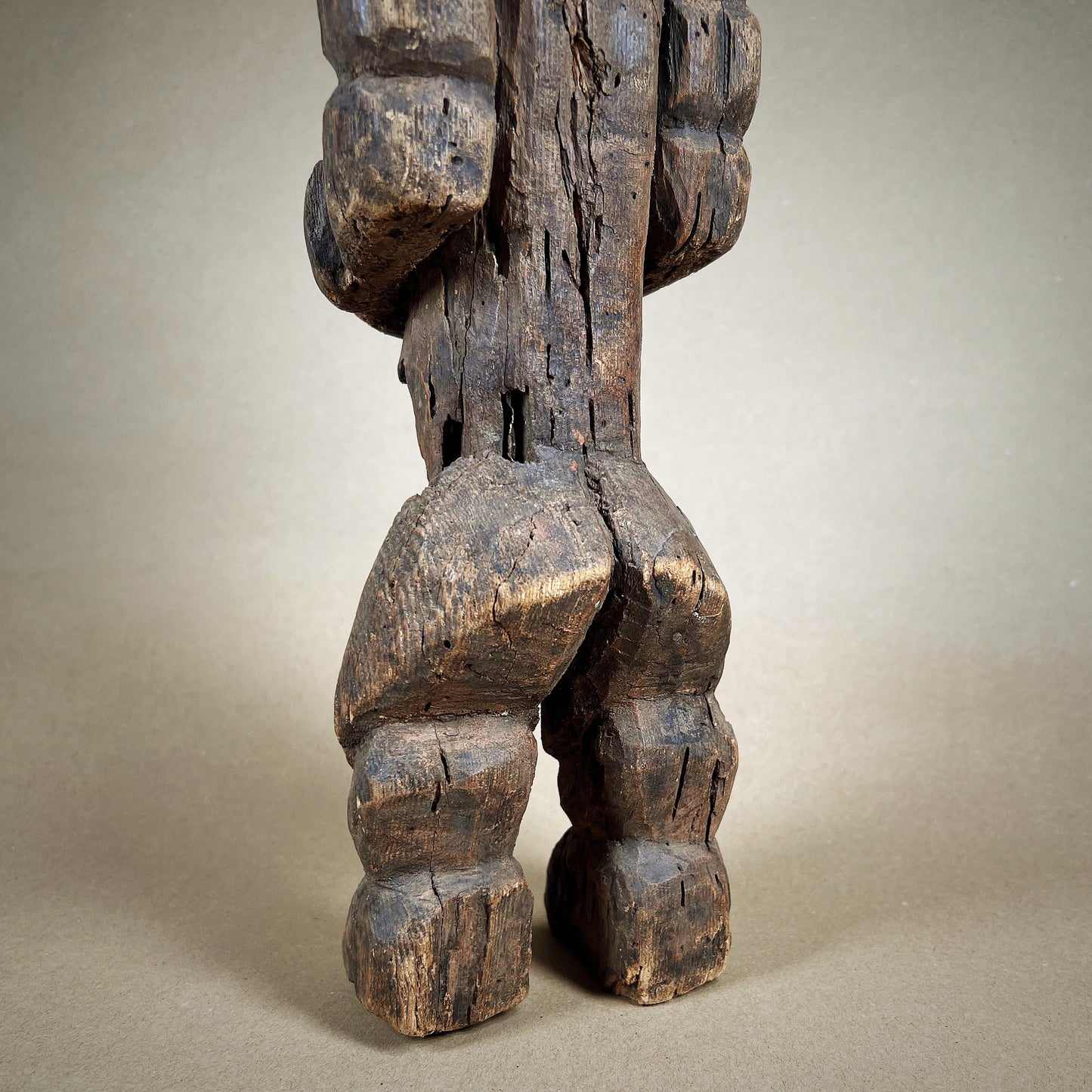
-
Shipping
The shipment will be prepared in the course of 3-5 days and dispatched via Posti Group Oyj or purchased item(s) can be picked up from our shop during the store's opening hours (Tarkk’ampujankatu 4, 00140, Helsinki, Finland). Within the Finland, all items are shipped via Posti Group Oyj unless otherwise requested. We pack the items carefully and mainly in recycled materials because we want to save nature. You will receive the tracking number for your items by e-mail.
-
Returns
Returns and exchange will be accepted within fourteen days (14) of receipt at the purchaser’s cost to include freight and packaging. Items must be returned in the same condition as when they were shipped, and will not be accepted if damaged or altered in any way. Please inform us via email (info@gotanmaailma.fi) or by calling +358408408352 before sending. We do not accept returns more than 14 days after delivery.
